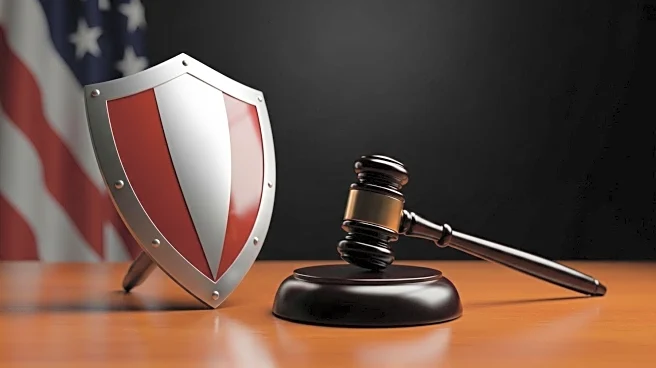What's Happening?
The National Guard, traditionally mobilized for domestic disaster response, is increasingly being deployed for roles beyond its intended purpose, such as immigration enforcement and crime suppression. This shift has sparked concerns about the erosion of trust between the Guard and the communities it serves. Historically, the National Guard has been seen as a supportive force to civilian authorities during emergencies, but recent deployments have positioned Guardsmen in roles akin to policing, which has led to tensions. The trend of using the National Guard as a stopgap for underfunded civilian roles, such as substitute teachers and bus drivers, is seen as a dangerous precedent that blurs the line between civilian support and coercive force.
Why It's Important?
The expanded use of the National Guard in roles traditionally reserved for civilian institutions poses significant risks to American democracy. It undermines the Guard's moral authority and trust within communities, as its presence becomes associated with coercive force rather than emergency support. This trend reflects a broader issue of underinvestment in public infrastructure, where political leaders opt for military solutions over sustainable civilian governance. The implications are profound, as it may weaken the Guard's readiness for its primary military missions and erode public trust in government institutions. The reliance on the Guard for civilian roles defers necessary investments in education, sanitation, and law enforcement, potentially leading to long-term governance challenges.
What's Next?
Governors and state legislatures have the power to redefine the National Guard's role by setting clear boundaries around its deployment for law enforcement purposes. They can resist federal requests for the Guard's involvement in non-emergency policing roles and insist on transparent guidelines for any necessary deployments. If the federal government attempts to override state decisions, bipartisan resistance and congressional action may be required to protect the Guard's intended functions. Rebuilding civilian institutions is crucial to preserving the Guard's emergency role and ensuring it remains a community-based force of last resort.
Beyond the Headlines
The misuse of the National Guard for political or social conflict management could weaken its capacity to serve as a lifesaving force during genuine emergencies. This shift may also impact the Guard's internal morale, as members trained for combat and disaster response find themselves in roles that conflict with their service motivations. The broader societal implications include potential shifts in public perception of military involvement in civilian affairs, raising ethical and governance questions about the balance between military and civilian roles in society.










